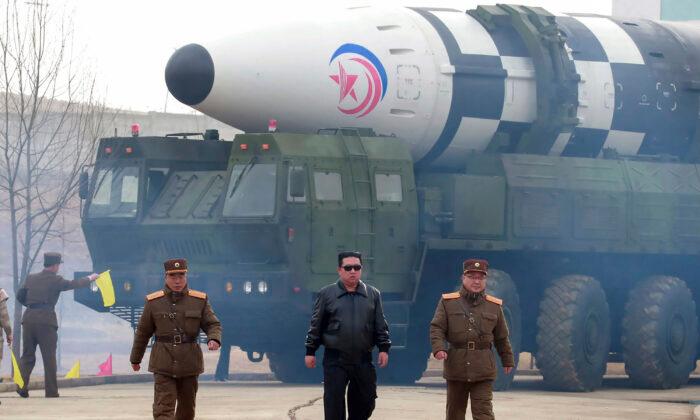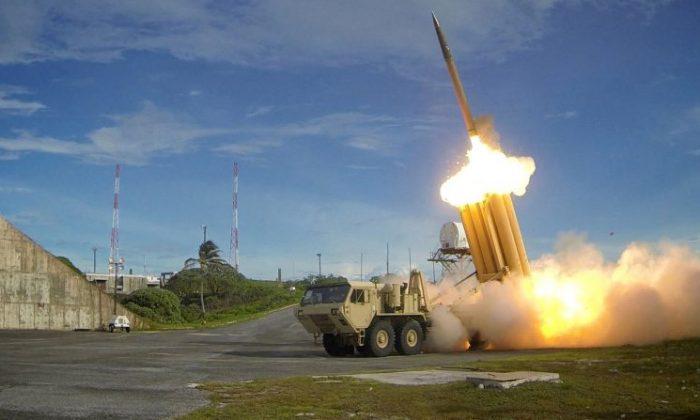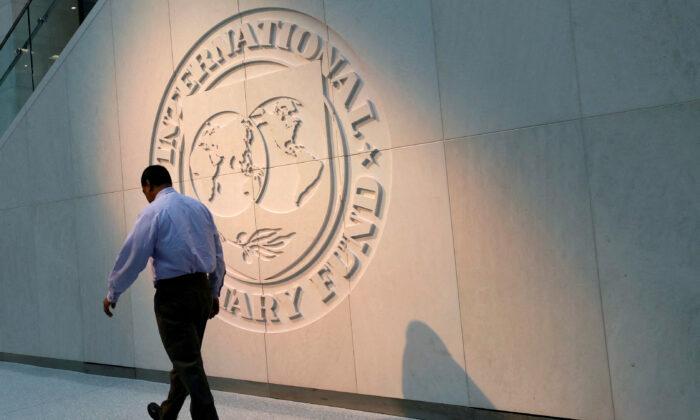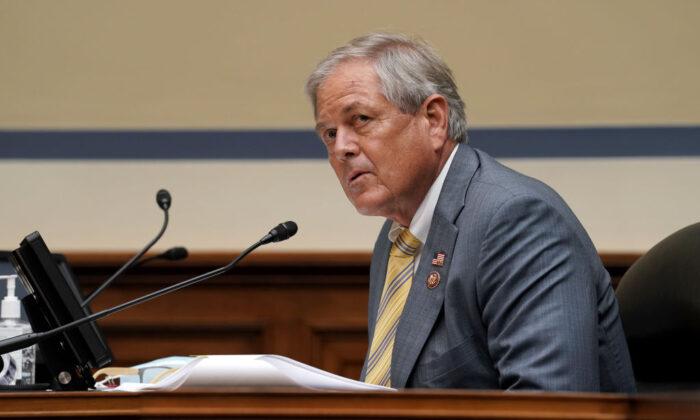Former defense officials joined members of Congress to express concern that the United States is lagging in its missile defense capabilities, leaving the nation vulnerable to attacks from countries such as Russia, China, and North Korea.
At the Center for Strategic and International Studies (CSIS) on March 24, officials argued in favor of a renewed focus on interceptive missile systems in today’s age of ever-advancing weaponry.
Congressman Seth Moulton (D-Mass.) said that the stakes are high and the consequences of inadequate missile defense systems could be catastrophic.
“It’s about our strategic stability. It’s about—if we get this wrong—the future of the human race, because a nuclear holocaust could result from getting this whole thing wrong,” he said.
Moulton, ranking member of the House Strategic Forces Subcommittee, emphasized the urgent need for a new generation of interceptors to defend against potential attacks from North Korea.
“North Korea gets one more [intercontinental ballistic missile], we’re overwhelmed. That’s a real problem,” he said. “We don’t have the next-generation interceptor coming along for another four years.”

Former Department of Defense (DOD) officials, many having served across several administrations, also spoke at the CSIS event.
Joining the DOD during the George H. W. Bush administration and retiring in the early days of President Joe Biden’s, former Director of the Office of Missile Defense Policy Peppi DeBiaso echoed Moulton’s sentiments, saying a “legacy mindset” is preventing the United States from achieving real advancements in interceptive capabilities.
“The U.S. is still constrained in the way it thinks about missile defense,” DeBiaso told The Epoch Times.
“It doesn’t want to build missile defense systems that are too good for fear the Russians or the Chinese will oppose it,” he said.
“We keep the budgets flat. We’re not innovating in technology.”
DeBiaso criticized the prevailing reluctance to pursue more advanced missile defense systems, arguing that it’s based on an “ahistorical view” that upgrading defensive capabilities will incentivize adversaries of the United States to advance offensive weapons.
DeBiaso’s co-panelist, former Director of the Arms Control and Disarmament Agency Ken Adelman, also said that theory of defensive research is flawed.
“I don’t believe that at all,” Adelman told The Epoch Times. “We have an obligation to protect the United States.”
Defense and Diplomacy
Many CSIS panelists emphasized the need for a coherent and multi-pronged strategy, weaving in defensive technologies with diplomatic solutions.Rep. Doug Lamborn (R-Colo.)—who chairs the Strategic Forces Subcommittee—said he is concerned about the rapid developments in weaponry by the Chinese, particularly in hypersonic missiles and nuclear-capable arms.
“I’m calling on the Biden administration to look to include China or in some way incentivize them to come to the negotiating table,” he said at the CSIS event.

His co-panelist, Moulton, agreed that China is a potent threat.
China could invade Taiwan and strike the U.S. territory of Guam in the process, Moulton warned. Such an event would accelerate the necessity of having interceptive systems online.
“If [defense systems] are not in place by Xi’s invasion timeline, we’ve got a problem,” he said.
He acknowledged the need for multiple approaches, leaving diplomacy on the table. “Doing something might be wising up and getting back to some sort of treaty that limits this arms race.”
“We have to balance a lot of different strategic interests around the world,” Moulton told The Epoch Times.
Responding to the renewed push for missile interception research, DOD press secretary Brig. Gen. Patrick Ryder told The Epoch Times that the administration places high importance on these technologies.
“Missile defense is something the Department [of Defense] takes very seriously,” he said at a press briefing on March 24.
“When you look at the kinds of missile capabilities that countries like China are developing or the use of missiles in the war in Ukraine, missile defense continues to be a very important aspect of our portfolio.”




